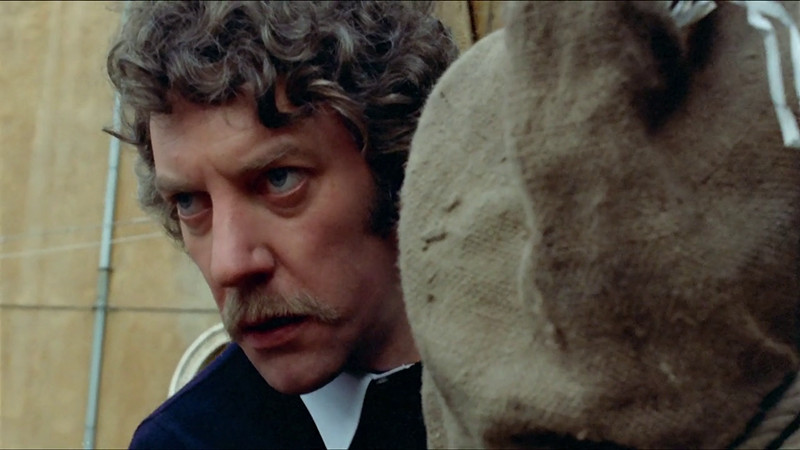
Though each passing decade has uniquely changed the face of film, the seventies undeniably sent shockwaves through the cinematic landscape. Movie screens still reverberate today from the aftershocks, and nowhere are the effects felt more profoundly than in the horror genre. The loosening of censorship restraints broke the mold for what could be shown on screen, while a growing audience tolerance for visceral terror unleashed new waves of creativity behind the camera.
These ten films are testaments to the impact that the decade had on movie history – both for individual movies and for broader trends within the industry. Several are timeless masterpieces, while some are better described as shockers which nevertheless left an outsized influence on future films. But by now they’re all classics worthy of your attention, so let’s take a closer look at the ten most influential horror movies of the 1970s.
10. The Wicker Man (1973, Robin Hardy)
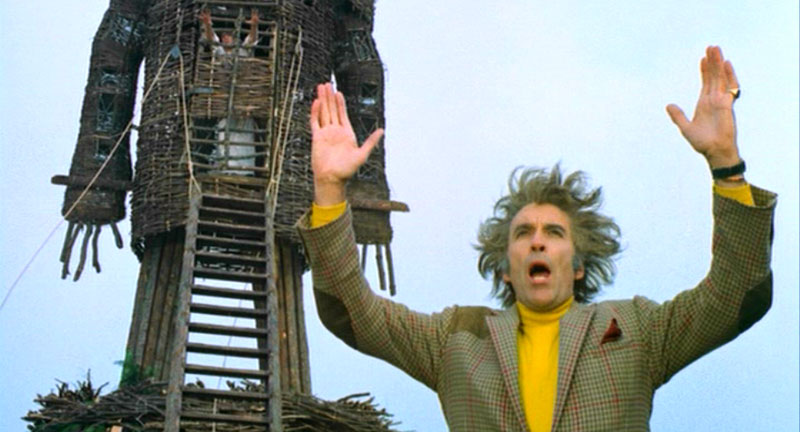
Few films in history have achieved such a massive return on investment as the cult horror classic The Wicker Man. This perfect marriage of artistic integrity and a shockingly low budget has gone on to incredible acclaim from its humble origins. Its success is largely attributable to the tireless advocacy of actor Christopher Lee, who threw himself into both the creation and promotion of this passion project of director Robin Hardy. The Wicker Man remains the seminal example of folk horror, and no modern example of the subgenre can escape its long shadow.
When a devout Christian cop, played by Edward Woodward, is summoned to a remote island to help search for a missing child, he stumbles into a tight-knit group of self-described pagans with drastically different beliefs than his own. His moral sensibilities are repeatedly shocked by the pagan practices of the island’s inhabitants, and his search for the lost girl becomes hopelessly complex as it appears that his hosts have much to hide. It’s difficult to root against the stalwart detective, but watching his potential ruin at the hands of the islanders sure makes for fantastic viewing. Cinema will never outgrow the awful horror of The Wicker Man.
9. Alien (1979, Ridley Scott)
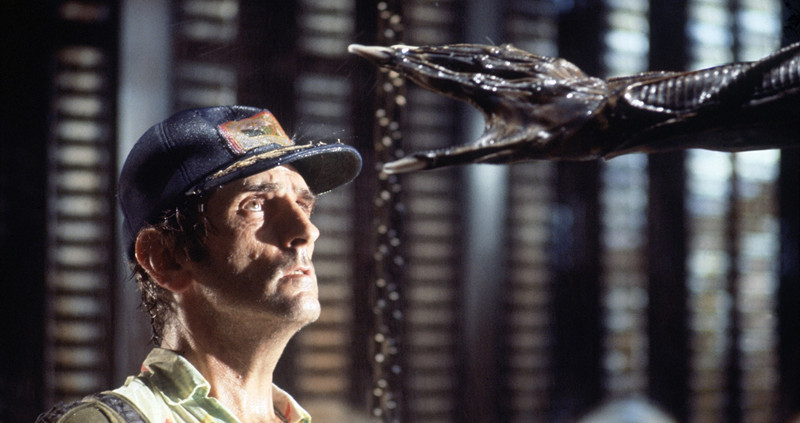
One of Alien’s most important achievements was to take a popular movie theme and transport it to an exciting new setting – namely outer space. The claustrophobic tension created by the threat of a mysterious killer only grows in the remote, lonely regions of a dark universe. Ridley Scott’s skillful direction helps make this a genuine artistic and stylistic achievement, and part of his genius here is the film’s simplicity. Without a variety of settings, and without the debilitating crutch of modern CGI, Alien accomplishes what few films since have – an endlessly engaging, terrifying experience that has yet to age.
The members of a space crew are lightyears away from the nearest humans, and all alone with each other – or so they think. When they realize that a malevolent alien creature is also on board with them, eliminating them one by one, panic sets in. Not knowing how to fight a monster about which they know nothing, the crew must find a solution or die in anonymity. The isolation of the characters in Alien is as terrifying as the alien itself, and these elements combine to make an unforgettable horror classic.
8. Dawn of the Dead (1978, George A. Romero)
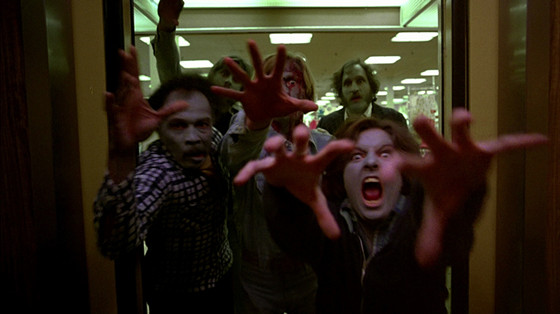
Other zombie movies had come and gone before 1978’s Dawn of the Dead, but few would leave such a lasting impact on the future of the horror genre. This unmitigated slaughter session of a film left no zombie standing, and opened the flood gates for new waves of deadly undead horror. If these sound like the ingredients of a cheap shocker to you, you’re not too far from the truth; but, veteran director George A. Romero also brought enough artistry and creativity to the proceedings to ensure that Dawn of the Dead would be the dawn of a reinvigorated subgenre.
Set primarily in a shopping mall, Dawn of the Dead seems to have a few critical things to say about American consumerism, but the prevailing theme is definitely zombies, and the killing of zombies. It’s admittedly a one-note kind of movie, but that one note is unquestionably an exciting one. An army of zombies is taking over the entire United States, and the number of the fully living is shrinking on a daily basis. A small group of survivors find themselves cornered in the relative safety of a shopping center, where they engage in a battle on behalf of humanity. Brace yourself for the violence, but prepare to be entertained.
7. Carrie (1976, Brian De Palma)
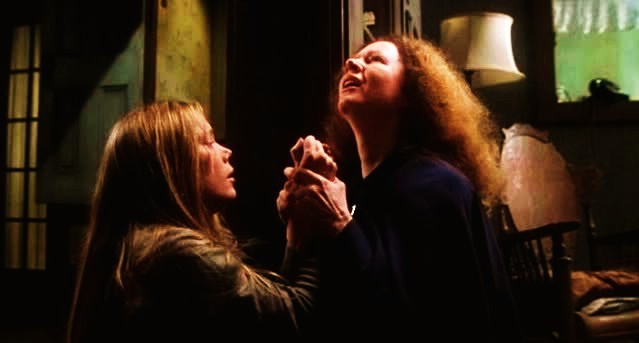
Not only did 1976’s Carrie show the world how effective a quality adaptation of a Stephen King story could be, it also basically set the gold standard for horror adaptations of any kind. This classic perfectly captures the spirit of a novel filled with intense emotional energy, and translates that energy through pitch perfect performances. Anchored by the brilliant acting of Sissy Spacek and Piper Laurie, Carrie is everything that a film adaptation of a great book should be, and it has left many imitators in its wake.
Featuring the most famous prom night in history, Carrie continues to be an instructive parable to mean girls everywhere. The movie is named after its protagonist, a socially awkward high school girl who is mocked at school while being humiliated at home by her religious bully of a mother. But soon after discovering her extraordinary mental powers, Carrie starts to lose patience with the escalating mistreatment she receives from everyone around her. The results of her retribution aren’t pretty, but this film remains a great classic of the horror genre, and a perennially influential horror film.
6. The Texas Chainsaw Massacre (1974, Tobe Hooper)
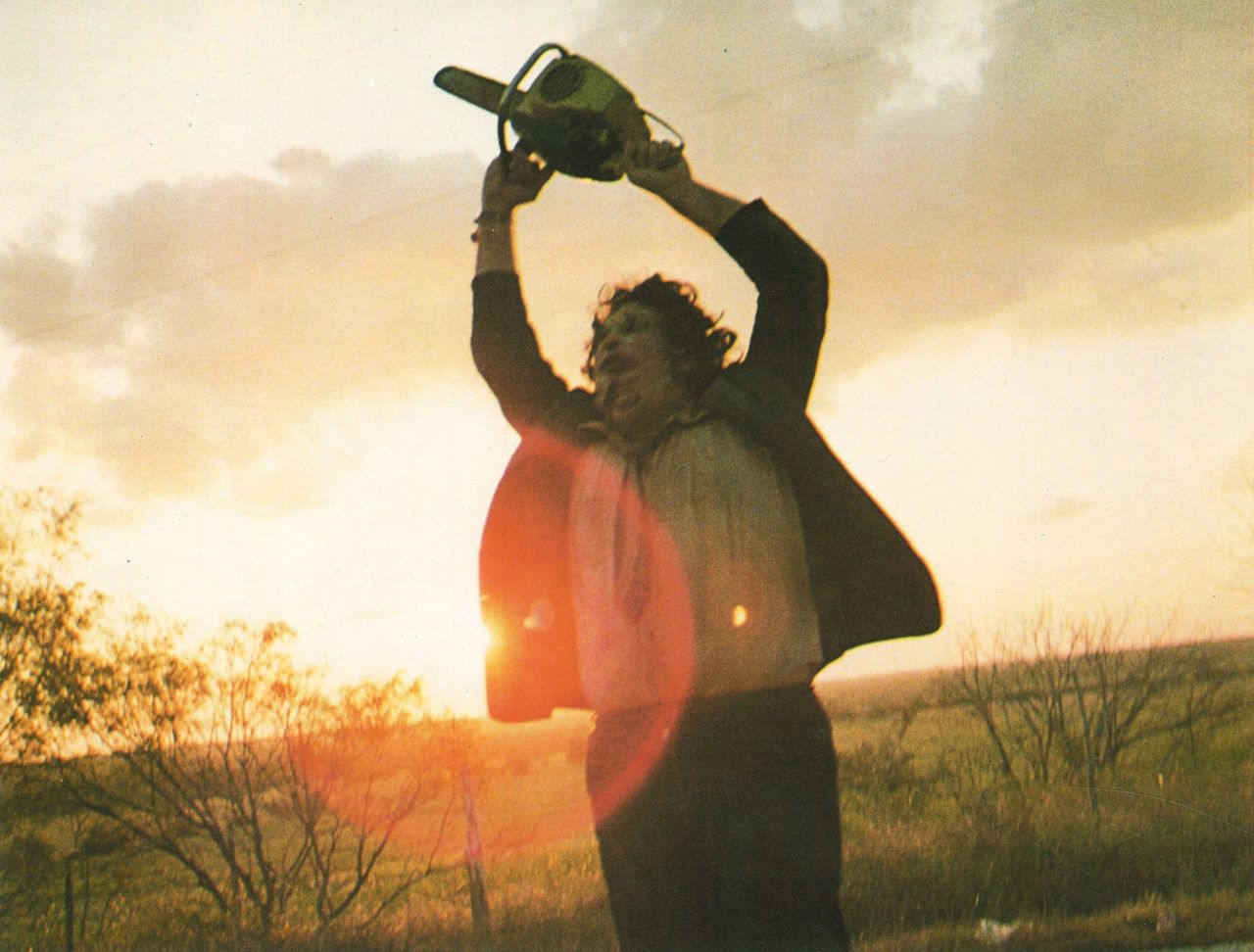
Here’s a shocker of a film that would have been simply unthinkable to make in any prior decade in Hollywood. The very nature of the grotesque horror on display made this movie both a disruptor and a trendsetter. The Texas Chainsaw Massacre is a nightmarish descent into exaggerated, impossible horror, which set new standards for what film audiences could tolerate and be scared by. Nevertheless, the deft directing of Tobe Hooper rescues this movie from being relegated to the trash heap of exploitative garbage, and it continues to reveal its staying power year after year.
When a group of friends run out of gas on a short road trip together, they think that will be the worst of their problems… but the trouble is only starting. They find the local gas station empty, and while visiting a nearby home, they encounter the infamous Leatherface – a chainsaw-wielding maniac wearing a mask made of skin. Thus begins the group’s horrific encounter with a relentless killer who won’t stop until they’re all dead. Buckle up for a wild ride.